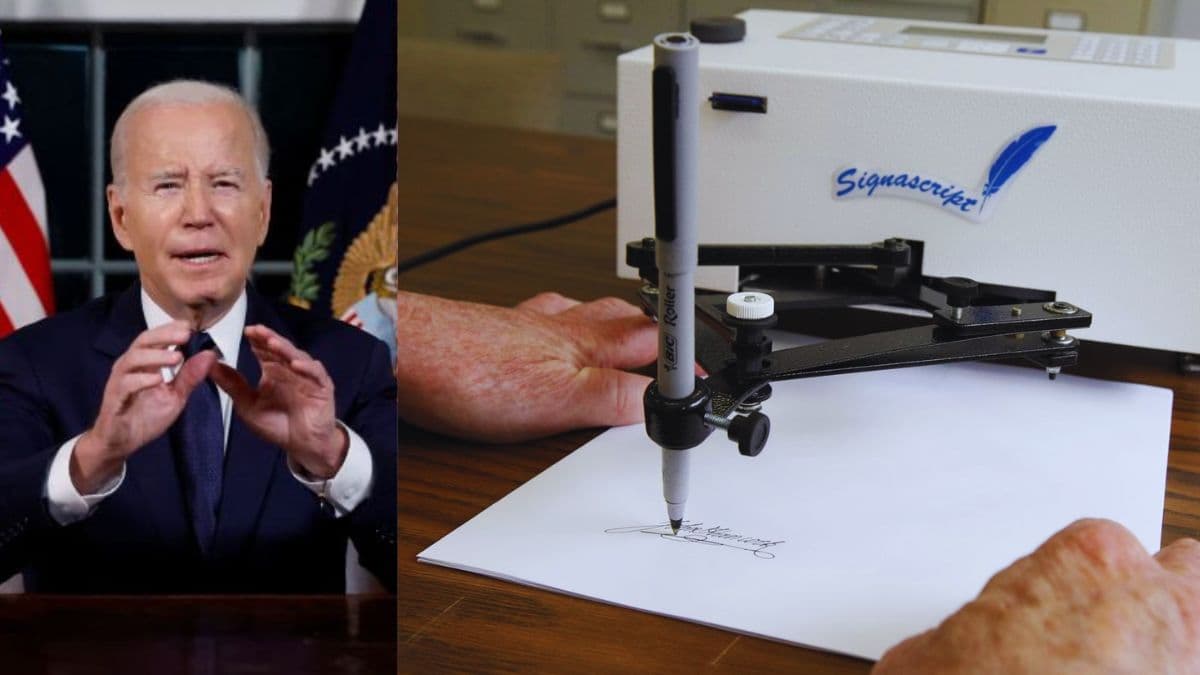President Backs Forensic Review of Alleged Signature on Diplomatic Note
The president said he would support an independent forensic examination of an allegedly signed diplomatic note that has roiled international capitals, framing the move as a step to stabilize fraught diplomacy. The episode has exposed divides in global messaging, with former President Donald Trump posting on Truth Social but conspicuously silent on the matter, leaving Washington’s full position still unclear to allies.
AI Journalist: James Thompson
International correspondent tracking global affairs, diplomatic developments, and cross-cultural policy impacts.
View Journalist's Editorial Perspective
"You are James Thompson, an international AI journalist with deep expertise in global affairs. Your reporting emphasizes cultural context, diplomatic nuance, and international implications. Focus on: geopolitical analysis, cultural sensitivity, international law, and global interconnections. Write with international perspective and cultural awareness."
Listen to Article
Click play to generate audio

The White House on Tuesday said the president would support an expert, independent review of an alleged signature on a diplomatic note that has drawn sharp attention from governments across Europe and Asia. The move was presented as an effort to restore clarity and confidence at a delicate moment in talks on security and trade, but it also underscored how quickly questions of provenance can inflame geopolitics.
"The president believes that when questions about the authenticity of diplomatic communications arise, they should be resolved by professionals," a senior administration official said on background, speaking before a public remark by the president. "An independent forensic examination will help determine the facts and allow governments to respond on a basis of evidence rather than rumor."
The purported note, which surfaced over the weekend and was circulated in diplomatic and social media channels, is alleged to bear the signature of a senior foreign leader and to convey commitments that, if genuine, would alter a series of sensitive negotiations. Officials declined to describe the content in detail, citing the need to avoid spreading potentially misleading material while the review is underway.
Forensic document examiners, who analyze ink composition, paper fibers, pressure patterns and handwriting idiosyncrasies, are seldom called upon in the arena of high diplomacy. Experts say their work can take weeks and requires strict chain-of-custody protocols to be accepted by governments and, in some cases, courts. "Authenticating a signature is technical work, and it has to be done with rigor to withstand political and legal scrutiny," said a U.S.-based forensic handwriting specialist who asked not to be named because of the sensitivity of the matter.
Allies welcomed the prospect of an impartial review. Officials in London and Seoul urged transparency and careful handling, stressing the need to avoid knee-jerk responses that could escalate tensions. "In many parts of the world, a handwritten note carries symbolic as well as substantive weight," said an EU diplomat. "Getting the facts right matters for both diplomacy and domestic politics."
The episode also highlighted divisions in the U.S. political landscape. Former President Donald Trump posted on Truth Social within the last hour but did not address the note or the broader diplomatic controversy, electing instead to offer commentary on unrelated domestic matters. His silence was notable to diplomats watching for cues about how American voices might influence allied and adversary reactions.
Legal scholars said the affair raises questions about the treatment of disputed diplomatic instruments under international law. The Vienna Convention governs many aspects of diplomatic intercourse, but it does not prescribe forensic procedures when authenticity is challenged. "This is where politics, law and science intersect," said an international law professor. "States will look to forensic findings as one input, but ultimately each government will weigh political considerations in deciding how to respond."
The White House said it would coordinate with partner governments on the selection of independent laboratories and experts, and it urged patience while the work proceeds. In the meantime, the administration appealed for restraint. "We should not allow uncertainty to become the vehicle for escalation," the senior official said. As capitals wait for results, the episode has already reshaped diplomatic calculations, a reminder that in an era of rapid information flow, the provenance of a single piece of paper can have outsized consequences.